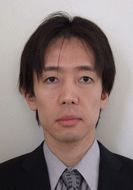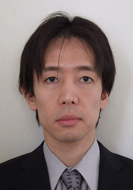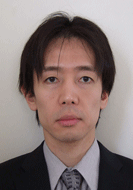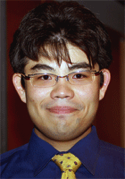

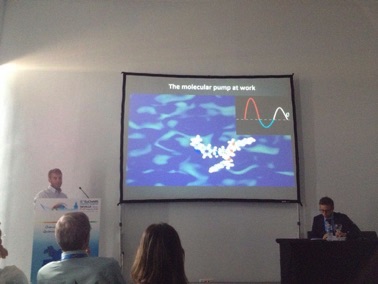
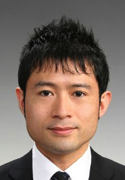
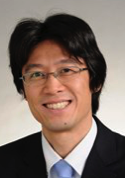




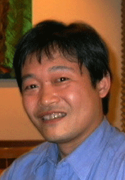
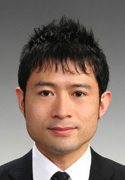
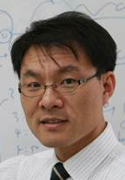
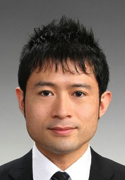
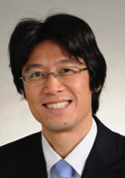
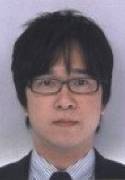
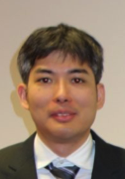
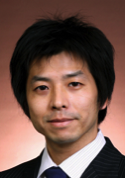


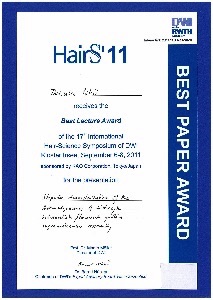
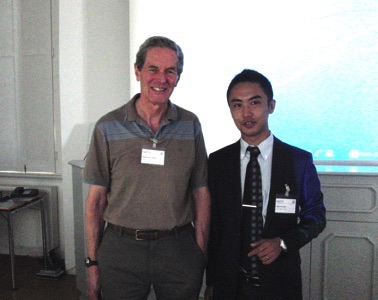
Alumni-in-Action
2018
Dr. Hiroyuki KAI (Tohoku University) received The Kao Science Encouragement Award
2016
Mr. Giulio Ragazzon (University of Bologna) received European Young Chemist Award
Dr. Takahiro MURAOKA (Tokyo Institute of Technology) received The Young Scientists’ Prize in The Commendation for Science and Technology by the Minister of Education, Culture, Sports, Science and Technology
“Research on Bio-inspired Stimuli-responsive Functional Molecules”
2015
Dr. Yohei YAMAMOTO (Tsukuba University) received SPSJ Hitachi Chemical Award
“Development of fluorescent microresonators from π-conjugated polymer spheres“
Dr. Vandana BHALLA (Guru Nanak Dev University) received Bronze Medal
by Chemical Research Society of India
Dr. Tsuneaki SAKURAI (Osaka University) received Mitsubishi Chemical Award
in Synthetic Organic Chemistry, Japan
Dr. Tsuneaki SAKURAI (Osaka University) received Funai Research Award for Encouragement
Dr. Takahiro MURAOKA (Tohoku University) received The Chemical Society of Japan
Award For Young Chemists
”Development of Stimuli-Responsive Functional Molecules Inspired by Nature”
2014
Dr. Katsuaki KONISHI (Hokkaido University) received The Chemical Society of Japan
Award for Creative Work
Dr. Takahiro MURAOKA (Tohoku University) received The Chemical Society of Japan
Biofunctional Chemistry Symposium Presentation Award
”Structural modification of PEG for protein manipulation”
2014
Dr. Woo-Dong JANG (Yonsei University) received Shim SangChul Award 2014
Division of Organic Chemistry, Korean Chemical Society
”Photosensitizing Hollow Nanocapsules for Combination Cancer Therapy”
Dr. Takahiro MURAOKA (Tohoku University) received The Chemical Society of Japan
Presentation Award
”Development of a Stimuli-Responsive Membrane-Embedded Amphiphile"”
Dr. Yohei YAMAMOTO (Tsukuba University) received The Young Scientists’ Prize,
The Commendation for Science and Technology by the Minister of Education, Culture,
Sports, Science and Technology.
”Research on Molecularly Assembled Materials with Excellent Optoelectronic Properties”
Dr. Takuya YAMAMOTO (Tokyo Institute of Technology) received Tejima Research Award
(Shiro Fujino Prize), Tokyo Institute of Technology.
Dr. Hiroshi SATO (Kyoto University) received the 2014 PCCP Prize
”Highly selective gas separation by stimuli-responsive crystalline micropores”
Dr. Tsuyohiko FUJIGAYA (Kyusyu University) received Iijima Award
“Highly Durable Polymer Electrolyte Fuel Cell Electrocatalyst Based on Carbon Nanotube”
2013
Dr. Keisuke TAJIMA (RIKEN) received The Young Scientists’ Prize in
The Commendation for Science and Technology by the Minister of Education, Culture, Sports, Science and Technology.
Dr. Akihiko TSUDA (Kobe University) received The Young Scientists’ Prize in
The Commendation for Science and Technology by the Minister of Education, Culture, Sports, Science and Technology.
Dr. Takuya YAMAMOTO (Tokyo Institute of Technology) received The Young Scientists’ Prize in
The Commendation for Science and Technology by the Minister of Education, Culture, Sports, Science and Technology.
“Research for novel functional materials based on the self-assembly of cyclic polymers.“
He was awarded for his work on "Research for novel functional materials based on the self-assembly of cyclic polymers" in which he applied the topology, or shape, of polymers to the design of functional materials. This methodology successfully improved the functionalities of polymeric materials that cannot be achieved by traditional means. Self-assembly of cyclic amphiphilic block copolymers gave micelles with significantly improved stability compared to those from linear counterparts. The stability was, moreover, readily tunable by simple mixing of the cyclic and linear amphiphiles. Additionally, to improve the properties of polylactides, which recently attract great attention due to the biomass-based production, cyclic stereoblock polylactides were synthesized.
Dr. Takuya YAMAMOTO (Tokyo Institute of Technology) received The Chemical Society of Japan
Lecture Award for Young Chemists.
“Self-assembly of cyclic polymers for functional development“
He was awarded for his work on "Self-assembly of cyclic polymers for functional development" in which he exploited functionalities arising from the cyclic topology of polymers via self-assembly. In comparison with linear counterparts, cyclic polymers exhibit shifted properties due to their topology. However, the differences in individual polymer molecules are limited and thus considered unlikely to be applicable for materials. Therefore, he self-assembled cyclic poly(ethylene oxide)-b-poly(alkyl acrylate) and polylactide to construct respective molecular aggregates to demonstrate significant changes in the structural stability and melting point, respectively.
Dr. Daisuke ISHII (Kao Corp, Global R&D, Hair Beauty Laboratory)
The 17th International Hair Science Symposium of DWI, BEST LECTURE Award.
2011
Dr. Takuya YAMAMOTO (Tokyo Institute of Technology) received Tokyo Institute of Technology,
Challenging Research President's Honorary Award.
“Development of functional materials based on the 'topology' of polymers: Construction of polymeric micelles for DDS.“
He was awarded for his work on “Development of functional materials based on the 'topology' of polymers: Construction of polymeric micelles for DDS“ in which he successfully amplified 'topology effects' by taking advantage of self-assembly inspired by biological systems. The resulting micelle showed significantly enhanced thermal and salt stabilities, which were applied for the development of DDS carrier. This research is expected to contribute to the foundation of the interdisciplinary field between topological polymer science and supramolecular chemistry.
Dr. Takuya YAMAMOTO (Tokyo Institute of Technology) received Society of Polymer Science Japan, Award for Encouragement of Research in Polymer Science.
“Improvement of the thermostability of a micelle by the cyclization of an amphiphilic block copolymer.”
He was awarded for his work on "Improvement of the thermostability of a micelle by the cyclization of an amphiphilic block copolymer" in which he found that a micelle formed from a cyclized amphiphilic block copolymer was more thermally stable by approximately 50 °C in comparison with one from the linear counterpart. Furthermore, the thermal stability was able to be tuned by coassembly of the linear and cyclized copolymers.
Dr. Akihiro KISHIMURA (The University of Tokyo) received Society of Polymer Science Japan
Award for Encouragement of Research in Polymer Science.
“Development of polyion-complex vesicles based on water-soluble block copolymers toward
biomedical applications.”
He was awarded for his work on "Development of polyion-complex vesicles based on water-soluble block copolymers toward biomedical applications in which he found that precise control of polymer compositions and preparation condition resulted in the formation of polyion complex vesicles (PICsomes). Particularly, he established very easy method of size tuning of PICsomes. Also, cross-linked PICsomes with precisely controlled sizes showed extremely long blood circulation in mice.
Dr. Daisuke Takeuchi (Tokyo Institute of Technology) received Society of Polymer Science Japan
Wiley Polymer Chemistry Award.
“Novel Controlled Polymerization by Utilizing Reaction Properties of Late Transition Metals”
He was awarded for his work on “Novel Controlled Polymerization by Utilizing Reaction Properties of Late Transition Metals”, where he found that late transition metal complexes such as Pd and Ni promote stereoselective polymerization of alkylcyclopentenes and 1,6-dienes to afford the polymer with alternating cyclopentane rings and oligomethylene groups.
Ms. Tomoko Tashiro (FUJI FILM) on TV commercial.
Dr. Akihiro KISHIMURA (The University of Tokyo) received The Chemical Society of Japan, Lecture Award for
Young Chemist.
“Precise Control of the Structure and Properties of Polyion Complexes and Their Dynamic Behaviors”
2009
Dr. Akihiro KISHIMURA (The University of Tokyo) received Excellent Presentation Award at 18th Polymer
Material Forum.
“Development of Polyion complex vesicles ‘Nano-PICsomes’ with tunable size and stability in submicron region.”
Dr. Tsuyohiko Fujigaya (Kyushu University) received Excellent Presentation Award at 18th Polymer
Material Forum.
“Development of Novel Electrocatalyst for Fuel Cell Composed from Polybenzimidazole / Carbon Nanotube
Compopsites.”

ALUMNI-IN-ACTION

